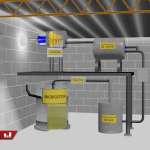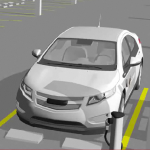COCME co-hosted its third technical seminar, “Opportunities and Barriers for the Implementation of Smart Grids in Colombia”, on 7 June in Medellín to look at how such intelligent energy systems could transform Colombia’s power system.

The project will cover 4% of the university’s energy needs. The micro-grid is also expected to reduce CO2 emissions while providing a ‘live’ laboratory for students.
Construction has started and is expected to be completed in two to three years, depending on how much private sector support the project receives, said Professor Millan.
Alberto Olarte, President of Colombia Inteligente, discussed a number of smart grids projects in Colombia. These include the Flores IV thermal combined cycle plant, whose energy efficiency has increased by 48%, and the smart meters project at Emcali, an energy company in the city of Cali. He also discussed the main challenges for the implementation of smart grids in the country, which includes incorporating PMUs, energy efficiency, bidirectional meters, and substation automation in the Colombian power system.

The event was held jointly with the University of Medellín, Universidad Pontificia Bolivariana, Universidad de Antioquia, Universidad de Medellín, and Escuela de Ingenieria de Antioquia.
COCME has been supporting collaboration between the private and academic sectors for many years. Jairo León Garcia comments:
Other presentations at the seminar include:
-
Camilo Táutiva Mancera, the government’s Mining Energy Planning Unit (UPME) – Distributed generation to support grid expansion and reliability of supply
-
Norberto Duque, XM, a company of Interconexión Eléctrica S.A. – Smart grids in the operation of the national interconnected system
-
Roberto Urrea, Sistemas inteligentes en red – Opportunities and barriers in the implementation and operation of intelligent transport systems in smart cities
-
Alejandro Castillo, Universidad de Antioquia – Regulatory proposals for the promotion of renewable energy sources in Colombia
-
Edgar Porras, Isagen – Isagen’s intelligent building, which incorporates green building technologies and is being certified as a smart building.





_-80_result_688_387_s_c1_c_c.jpg)


